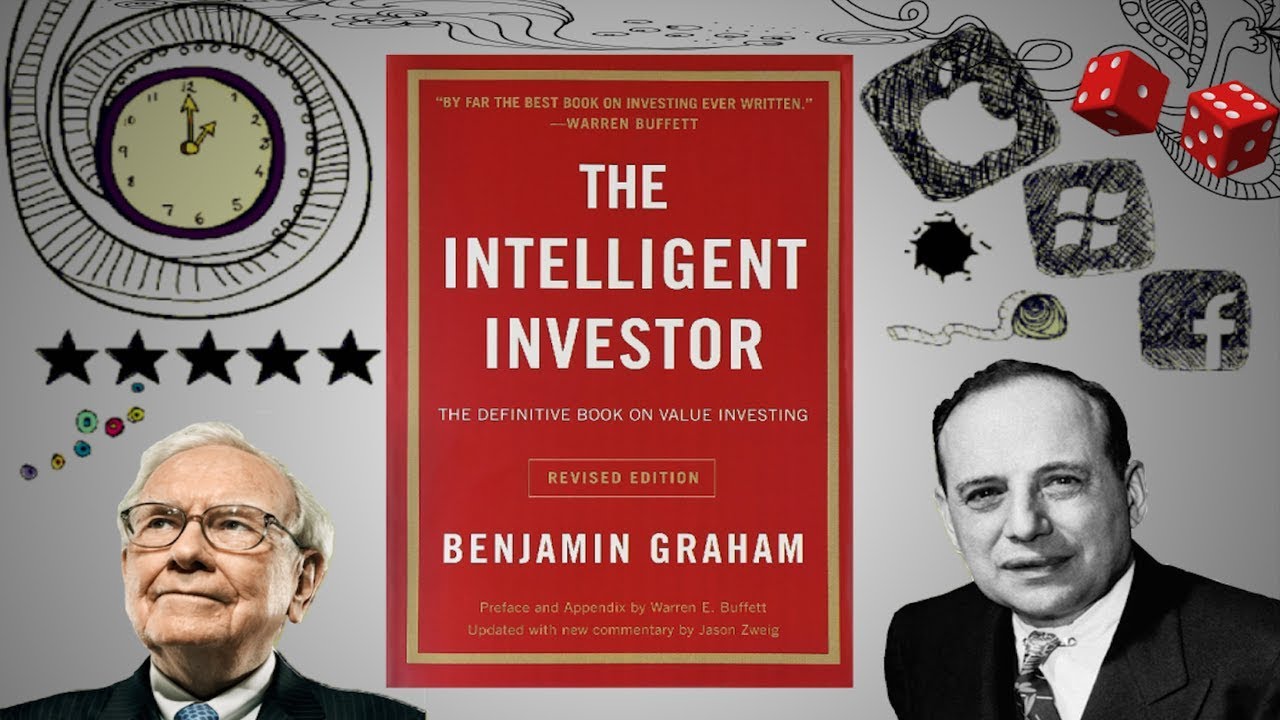General rules:
- Keep rebalancing your portfolio’s weight towards bonds and equities, twice a year. Suggested to allocate within 70-30 margins.
- Inflation can be your enemy, they chew your bond returns but do not affect stock returns.
- You are either an enterprising or defensive investor, there is no middle ground.
- Advice from your dear friends and family should be ignored; much free advice is given free.
- Whenever calculus is brought in, or higher algebra, you could take it as a warning signal that the operator was trying to substitute theory for experience, and usually also to give speculation the deceptive guise of investment.
- Industry estimates are more likely to be accurate than estimates for individual companies.
- There is no way of definitely determining how many years should be included in estimating growth rates.
- Looking at only one criterion may lead to less-than-stellar performance.
- It is better to sell and pay tax than to hold and repent.
- Graham believed in quantitative (statistical) approach over qualitative (story).
- Stock dividends are preferable to cash dividends due to tax laws.
Defensive Investors:
- Defined by the people who want absolute security of their principal amount, implying relatively lower returns.
- For a relatively small investor, US savings bonds are the ideal.
- Series E would offer assurance of principal as well as interest payments.
- Lower safety ratings by the agencies indicate a possibility of default, meaning higher risk which should be avoided by a defensive investor.
- Adequate diversification—somewhere between ten and thirty different issues.
- Select large, prominent, conservatively financed companies.
- Companies should have a long (twenty-plus years) unbroken record of dividend payment.
- Avoid getting into companies which have large amounts of stock option warrants outstanding.
- A beginner in investments, who takes it seriously and wishes to learn, is urged not to try to “beat the market,” but to concentrate on “price versus value” and to learn through experience, by investing small sums.
- Prefer American bonds over any foreign country bonds.
- Do not buy into IPOs as they are offered when market conditions favor the seller (issuer).
- Do not expect better than average returns when your source of information is your broker. They just want you to make more trades.
For Enterprising Investors:
- Defined by people who can devote a sufficient time to study companies in depth and are seeking higher returns.
- High returns can be made by buying large companies priced less than their net asset value (or book value).
- The average investor who picks growth stocks is not likely to outperform the professional who manages the funds
- Large fortunes have been made from growth stocks, but such investors have had a close relationship with that company, which an average investor might lack.
- A high dividend, high retained earnings (or high ROE), performs relatively better in a bull market.
- Bargain opportunities in bonds are more complex and harder to find.
- Do not react to market fluctuations, just observe.
- The intelligent investor will benefit from pricing whereas the investor who practices timing will become a speculator.
- As the market advances, part of the new more highly valued stock portfolio should be sold and the revenue invested in bonds
- Book value,” also known as “net asset value” and “balance sheet value” is what a company would be worth if sold for its physical and financial assets.
- Never buy a stock immediately after a substantial rise nor sell one immediately after a substantial drop.
- It is okay to notice information from brokers/advisers but must base investments on your own research.
- Buy equities where margin of safety exists, which is defined as following:
- Price to Book Value less than 1.33 (this ratio also depends on the industry)
- Satisfactory Price to Earnings ratio i.e. usually less than 15.
- Earnings per share should be three times the per-share fixed obligations of the company.
- Uninterrupted dividend payments reflect strong position cash position. Likewise, a weak financial strength is the most concerning among any other criteria.
- Net income of a business should exceed the fixed income expenses by at least three times.
- Pay attention to the Price to Debt ratio, less than 2.0 preferred, it predicts whether the company would stand an unexpected adverse development or not.
- Companies with Price to Asset ratio under 1.5, Current ratio higher than 2.0, and Price to Book Value under 1.5 are preferred.
- A low P/E can compensate higher Price to Book Value (ex: P/E of 9 at 2.5 Book Value would be acceptable).
- Earning power ensures safety, not the assets. However, due to accounting anomalies in earnings, it is recommended to consider growth in seven to ten years of earnings than just relying on a couple years of earning.
- The average Earnings to Price ratio for the whole portfolio should be at least as high as the current high-grade bond rate.
- Current assets should be at least 150% of current liabilities, i.e. Current ratio greater than 1.5.
- Stability can be measured my maximum decline in per-share earnings in any one of the previous ten years.
- Great management is the key, albeit hard to analyze.
- High rate of return on capital is accompanied by a high annual growth rate.
Investment Funds:
- On average, they match or slightly outperform the S&P 500 index, and substantially out-performed the DJIA (that was true in the 1900s; current evidence points to the idea that most mutual funds perform worse than DJIA).
- Sometimes, they are the market.
- One way to judge a performance is to look at the record when it was not a boom year on the market and/or discount that year from its reported performance.
- Balanced funds have both the stock and bond component, however on average, they returned 3.6% which is less than the US Savings bond.
- An adviser is supposed to give you information about a stock and not advice whether to buy or sell.
- In a research study, random selection of stock performed as well or better than the highly paid choices of the experts
That concludes a quick overview of the book, if you are serious about investing, read the book in depth to gain a better insight.




Leave A Comment